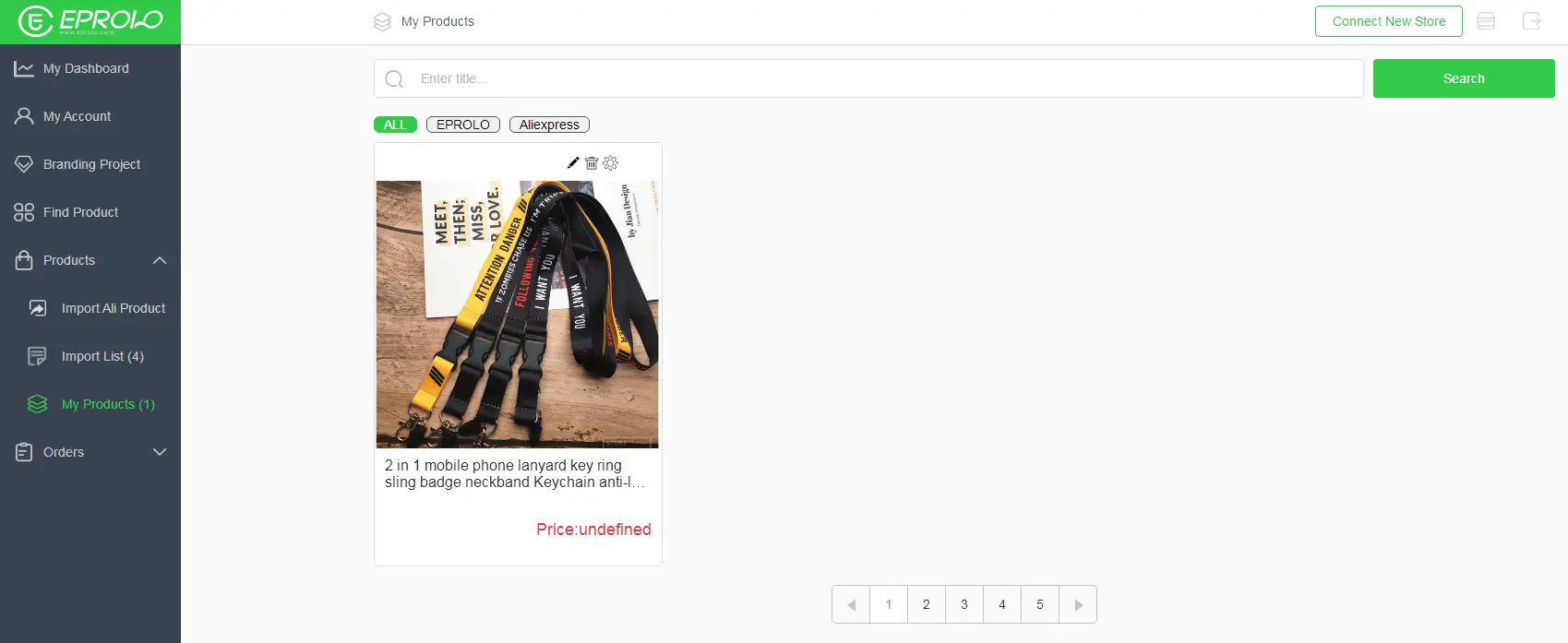Alternatives to DSers
1. AutoDS
+Pros
- Multi-channel integration breadth supporting Shopify, eBay, TikTok, and WooCommerce with automated order processing capabilities.
- Supplier diversification capabilities providing access to 25+ suppliers including Amazon and Walmart, reducing single-source dependency risks.
- Documented performance evidence includes 42% fulfillment time reduction and 28% increase in repeat orders within three months through systematic implementation.
-Cons
- Implementation complexity creates significant barriers, particularly for WooCommerce integrations requiring technical expertise compared to streamlined Shopify setup.
- AI pricing algorithm limitations emerge during supply chain disruptions, where algorithmic responses lack contextual awareness and may trigger margin erosion without proper oversight protocols.
- Minimum viable scale requirements include 200+ SKUs for basic functionality, making the platform potentially over-engineered for smaller operations.
One highlighted feature and why it's amazing
Core automation capabilities center on multi-channel order processing across Shopify, eBay, TikTok, and WooCommerce platforms.

Another highlighted feature of why it’s amazing
The AutoDS Finder feature analyzes market trends to identify potential products.
2. Eprolo
+Pros
- Integrated AI sourcing with branded fulfillment services .
- Print-on-demand capabilities for over 1,500 products without minimum order quantities .
- Multi-region fulfillment infrastructure spanning US, EU, and Asian markets .
-Cons
- Approximately 12% of users report shipment delays from misaligned inventory data .
- Limited market share among SMB-focused dropshipping tools compared to established players like Spocket .
One highlighted feature and why it's amazing
Image-based and keyword-driven product sourcing that analyzes market trends to recommend high-demand items .

Another highlighted feature of why it’s amazing
Seamless integration with major ecommerce platforms including Shopify and WooCommerce, automatically syncing orders, processing payments, and triggering fulfillment without manual intervention .
Other Alternatives
Modalyst
Printful
Sell The Trend
Spocket
Zendrop
How We Researched This Guide
About This Guide: This comprehensive analysis is based on extensive competitive intelligence and real-world implementation data from leading AI vendors. StayModern updates this guide quarterly to reflect market developments and vendor performance changes.
206+ verified sources per analysis including official documentation, customer reviews, analyst reports, and industry publications.
- • Vendor documentation & whitepapers
- • Customer testimonials & case studies
- • Third-party analyst assessments
- • Industry benchmarking reports
Standardized assessment framework across 8 key dimensions for objective comparison.
- • Technology capabilities & architecture
- • Market position & customer evidence
- • Implementation experience & support
- • Pricing value & competitive position
Research is refreshed every 90 days to capture market changes and new vendor capabilities.
- • New product releases & features
- • Market positioning changes
- • Customer feedback integration
- • Competitive landscape shifts
Every claim is source-linked with direct citations to original materials for verification.
- • Clickable citation links
- • Original source attribution
- • Date stamps for currency
- • Quality score validation
Analysis follows systematic research protocols with consistent evaluation frameworks.
- • Standardized assessment criteria
- • Multi-source verification process
- • Consistent evaluation methodology
- • Quality assurance protocols
Buyer-focused analysis with transparent methodology and factual accuracy commitment.
- • Objective comparative analysis
- • Transparent research methodology
- • Factual accuracy commitment
- • Continuous quality improvement
Quality Commitment: If you find any inaccuracies in our analysis on this page, please contact us at research@staymodern.ai. We're committed to maintaining the highest standards of research integrity and will investigate and correct any issues promptly.